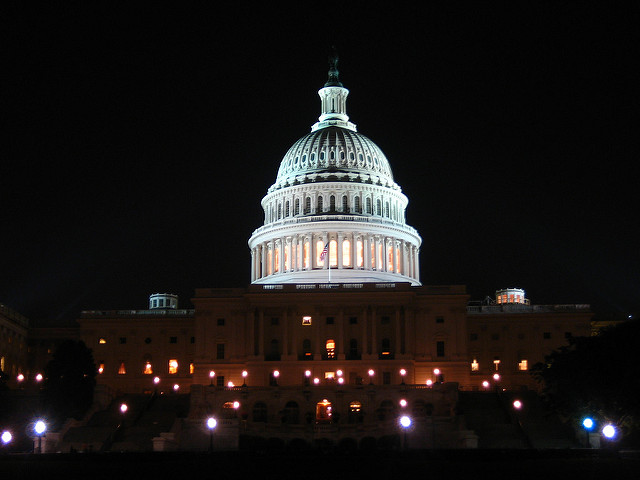On May 11th, Gene Peters, Chief of Counterterrorism and Forensic Science Research at the FBI Laboratory, will speak about the proposed spent nuclear fuel repository at Yucca Mountain, Nevada. Meeting logistics can be found below.
Biography
Gene Peters is Chief of Counterterrorism and Forensic Science
Research at the FBI Laboratory. In this capacity, he leads a team of
full-time research staff to develop new capabilities, improve existing
methods, and strengthen the scientific foundations of forensic analyses.
Prior to joining the FBI, he was a senior scientist and manager at the U.S. Nuclear Regulatory Commission, where he led the scientific and performance analysis of the proposed national spent nuclear fuel and high-level radioactive waste repository in Yucca Mountain, Nevada. His role included leading all research, development, and operational evaluation by teams examining the performance of systems at Yucca Mountain over a 1 million year performance period. These teams evaluated the performance of engineered systems, which included corrosion and structural performance, and natural systems, which included climate change, structural geology, hydrogeology, and geochemistry, and a probabilistic analysis of risk and consequences from system failure, in terms of radiochemistry and health physics.
Abstract: Scientific Analyses of the Proposed Spent Nuclear Fuel Repository at Yucca Mountain, Nevada
The U.S. generates approximately 20% of its electrical power using nuclear energy. While nuclear power has many advantages in terms of limiting CO2 emissions, it does generate a stream of highly radioactive spent nuclear fuel that must be managed. The national management strategy is based on geologic disposal and has a long and complicated history, most of which centers on the selected repository site—Yucca Mountain, located in southwestern Nevada, on the Nevada Test Site. The Yucca Mountain project is unique for its Congressional involvement, controversial site selection process, and truly fascinating array of scientific and technical challenges. This topic is very timely, given the new administration’s interest in reviving the YM project, which had been administratively halted in 2010, as well as changes in Congressional leadership—which has had an intimate influence on YM in the past. We will cover, very briefly, the legislative history as it informs the scientific analysis, and focus on the scientific challenges, controversies, issues, and potential solutions that have dominated the YM project throughout its history. Chemistry-centric issues include the influence of aqueous and deliquescence chemistry on corrosion of various alloys and fuel elements, the geochemistry of natural systems, and potential radiochemical exposure pathways, all in a fully probabilistic framework.
Meeting Logistics
Date: Thursday, May 11, 2017
Time: 6:00 p.m. – Check-in and social hour
6:30 p.m. – Dinner
7:15 p.m. – Presentation
Cost: $24.00 Members / Guests
$12.00 Students
Location: ACS Headquarters, Marvel Hall
1155 16th St., N.W., Washington, DC
Menu: Filet Steak Diane (filet of beef topped with a classic cognac and mustard sauce), served with roasted potatoes, garden salad, and artisan bread. Vegetarian option: cheese manicotti, served with grilled vegetables, tossed salad, and garlic bread. Dessert: Cream Cheese and Sugar Topped Cupcakes (vanilla and chocolate).
RSVP by noon on May 9, 2017, to csw@acs.org or by phone 202-659-2650 (messages only). Please provide the names in your party when you RSVP and let us know if you prefer the vegetarian option. The public is invited to attend. You may attend the talk only, but reservations are appreciated. Those who make a dinner reservation, but are unable to attend, should send a check for the cost of their meal to the CSW office.
Photo credit: Wikipedia




